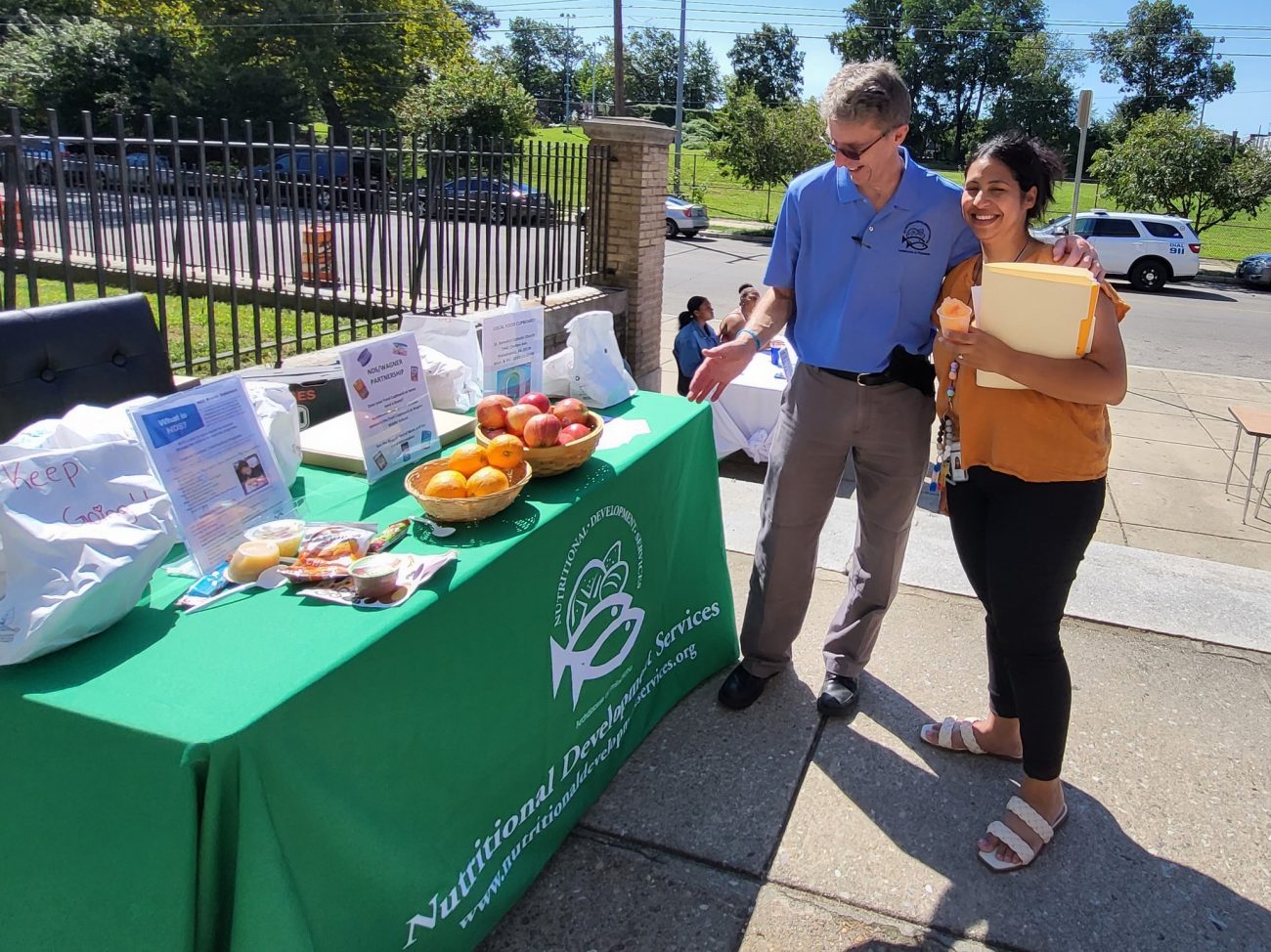This summer, Nutritional Development Services (NDS) had the opportunity to partner with Eagles Wings Ministries in the Nicetown-Tioga section of the City to provide breakfast and lunch for their Summer Meals Program for children and youth.
Each day Pastor Lola Blount along with her volunteers set the meals out under a tent and waited for children to arrive. Children and adults alike came in search of food. Although Pastor Blount had to originally turn the adults away, she immediately realized that she had to do something for them. She told them she would have some food for them the next week, but upon hearing that, one person reminded her that he was hungry now. Following the encounter, Pastor Blount reached out to NDS and other local groups for support, and in two short days she was distributing food to all that came for help. Within a few weeks, over 50 people were receiving a nourishing meal at her location.
Pastor Blount’s immediate response to the needs of her neighbors is a perfect example of putting faith in action. Perhaps her story will inspire some of us to duplicate her remarkable “action.” While this may not be possible for all, there are many other smaller “actions” that each of us can take.
Being aware of hunger is a good place to start. Globally about 9% of the population is undernourished with about 29% being moderately or severely food insecure. Ten thousand children die each day from chronic poor nutrition.
On a local level, Philadelphia is deemed the “poorest large city in the U.S.” with 1 in 4 children experiencing food insecurity. The need for food does not stop at the city border. The surrounding counties also have seen a rise in their numbers.
Some of the pressures are evident enough with a simple trip to the grocery store. High food prices that skyrocketed during the COVID-19 pandemic have yet to decrease and general inflation has been pinching our pocketbooks. Meanwhile, natural disasters and political conflict continue to disrupt the supply and availability of our food.
Although less overt, policy decisions also play a role in the increasing pressures surrounding the need for food. The shock waves from the cutting of SNAP benefits and the loss of the federal child tax credit have not yet settled for millions of American families. Established food cupboards are reporting rises in both their recipient numbers and the amount of food they need from agencies like NDS. In just the last few months, a half dozen organizations have reached out to NDS for help in starting up new cupboards and feeding programs.
For most of us the presence of hunger is not as up close and personal as it is for Pastor Blount, but hunger is clearly all around each of us.
Here are a selection of ways you can make an effort in the fight against hunger:
- Avoiding food waste is a food conscious effort. Have a designated “leftover day” each week and be deliberate in your purchasing decisions;
- Buy locally produced foods;
- Make plans to grow food and to share of any abundance with those in need;
- Bring extra food to a neighbor or an elderly person in your community;
- Offer food to someone experiencing homelessness
- Volunteer at an agency that feeds the hungry, or help at a local community garden
- Donate to anti-hunger organizations that support those in need such as NDS (locally) or to Catholic Relief Services (globally)
- Use your voice to influence food policy
- Pray for a just economic and political system that allows all people to have access to food
Any action, whether big or small, is enough to create positive momentum, especially when awareness behind the action is shared with others. Let’s get going!
***
Lizanne Hagedorn is the Executive Director of Archdiocesan Nutritional Development Services. David Stier is the Assistant Director of Community Relations for Nutritional Development Services.
PREVIOUS: Encounter, Formation, and Action
NEXT: The Necessary Inspiration in a Time of Troubles: Saints




Share this story